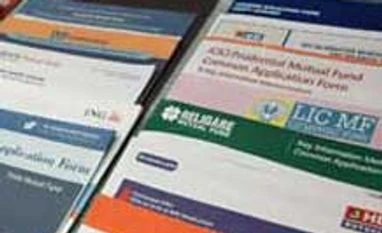The reaction came from the industry body after there were reports suggesting the fund houses were paying an extraordinarily high commission of six per cent to attract money for the government-proposed scheme.
Though V Ramesh, deputy chief executive officer of Amfi, denied any official communication to fund houses. However, he defended the move saying, "One has to realise that six per cent commission is for three years, so it works out to just two per cent a year, which is normal. RGESS has a lock-in of three years and also the investment limit is less. Therefore, the brokerage is slightly higher than normal brokerage. There is a cap on expense you can incur on a scheme and therefore there is automatically a cap on commissions that you can pay." The CEOs of two fund house confirmed to Business Standard that such a communication was sent.
"As per Amfi, since mutual fund houses will make 7-7.5 per cent profit at the end of the three year lock-in and hence can surely part with 6-6.5 per cent commission to agents," said a senior executive from a fund house.
He added that this is only Amfi's view. "Not all fund houses may make six-seven per cent profit on RGESS. And, if you defend firms paying high commissions, the other firms will be forced to pay before they lose their agents and potential customers," he said.
According to industry experts, mutual fund houses are likely to earn 3.5 per cent at the end of first year in an RGESS scheme and two per cent in both second and third years. And agents commission is only one of the many costs fund houses have to accommodate in the profits, with sales promotion taking up to one per cent from the profit. Fund houses say they should at least make 50 paise per investor at the end of the three-year lock-in period so as not to run into losses. "And if a company starts paying six per cent, it will lose money even before making it. And the present value of earnings in the second and third years is already zero," says another senior mutual fund executive.
Industry experts believe that commission payment should be the discretion of a fund house and the industry body should be neutral to such decisions.
And unequal commissions will give way to an unnecessary rat race in the industry like in the pre-entry load ban era. But by supporting / defending such decisions, the industry body will only push all fund houses to become a part of the race at the earliest.
)